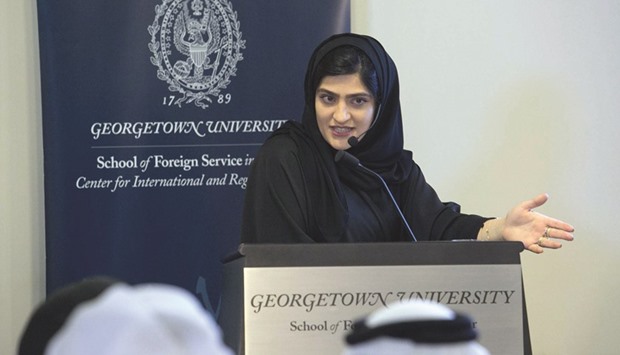Billions of dollars laundered through the global financial system, the staggering social, economic, and political fallout they cause, and what countries like Qatar are doing in response, were the topics of discussion of the Centre for International and Regional Studies (CIRS) Monthly Dialogue Lecture Series entitled “Is Black Money Really Black? The International and National Fight Against Money Laundering”.
The talk was delivered by Dr Reem al-Ansari, a professor at Qatar University’s College of Law and the 2015-2016 CIRS Qatar University Fellow at Georgetown University in Qatar.
According to al-Ansari, the term “money laundering” in its simplest form refers to an amount of money leaving destination A, and using techniques to make it seem like the funds were obtained from destination B, a legal source.
Once the money has moved through several banks in several countries, it can then be returned to its owner, ready to be used as legitimate funds.
Al-Ansari, who is also the director of the Legal Research and Studies division at Role of Law and Anti-Corruption Centre in Doha, listed various countries targeted for money laundering, as well as the nations that serve as destinations for newly-cleaned money.
Adding that Qatar is also a target of this criminal activity, she said: “Qatari authorities have responded to the threat of money laundering aggressively with the National Money Law in 2010.”
This law was enacted following the unsatisfactory conclusion of an International Monetary Fund-led evaluation report of Qatar’s banking system.
“That was Qatar’s awakening to the threat, and it led to the new law. The newly-established regulations are particularly important as a result of the criminal opportunities posed by the upcoming World Cup in 2022,” she said.
“Qatar now adheres to the series of recommendations that the Financial Action Task Force (FATF) has developed and that set the international standard for combating of money laundering,” she told referring to the nation’s FATF membership.
Al-Ansari earned her doctorate from Georgetown University’s Law Centre in Washington DC, making her the youngest Qatari lawyer and doctorate degree holder.

Dr Reem al-Ansari.
